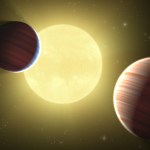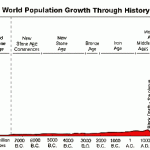die
I have. So I surfed the web and found this neat video from Smithsonian that explains it all.
"Everyone must leave something behind when he dies, my grandfather said. A child or a book or a painting or a house or a wall built or a pair of shoes made. Or a garden planted. Something your hand touched some way so your soul has somewhere to go when you die, and when people look at that tree or that flower you planted, you're there." -Ray Bradbury
Today is Memorial Day here in the United States, where we honor all the soldiers who have fought and fallen for our country. The peace and prosperity that I have enjoyed my entire life is because of a price paid, many times over, mostly by people…
Some time back, I was researching a feature for Wired when I stumbled across the US Department of Labor's Occupational Safety and Health Administration. One of the responsibilities of this office is to monitor workplace fatalities. Each week, a roundup of deaths in the workplace are posted online. They make for compelling reading.
As Secretary of Labor Hilda Solis states on the site: "With every one of these fatalities, the lives of a worker's family members were shattered and forever changed. We can't forget that fact". Yet the lists only hold the briefest of details. The company…
In 1912, Antarctic explorer Captain Lawrence Oates willingly walked to his death so that his failing health would not jeopardise his friends' odds of survival. Stepping from his tent into a raging blizzard, he left his men with the immortal words, "I am just going outside and may be some time." It was a legendary act of heroism but one that is mirrored by far tinier altruists on a regular basis - ants.
Like Captain Oates, workers of the ant species Temnothorax unifasciatus will also walk off to die in solitude, if they're carrying a fungal infection. In fact, Jurgen Heinze and Bartosz…
This is some very basic biology: when resources are unlimited and there are no pressures on a species, its population grows exponentially. There's also no evolution other than random mutations; without selection pressures (regardless of whether it's natural or artificial), the genetic information content of a species doesn't change appreciably.
Biologists make use of this to perform tests on certain cells. If you simply put a population of cells in a petrie dish and left them there, they start out by doing this:
They divide. They take over the dish. But then, they run out of room. And when…


